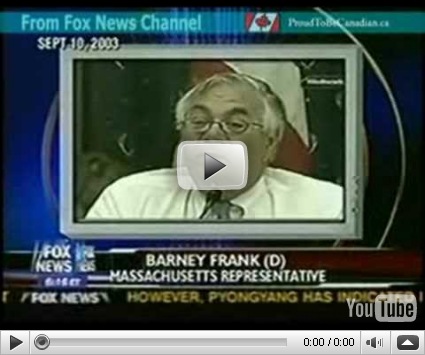Shire Network News #156: Mr. Moderate Muslim
Shire Network News #156 has been released. We’re back and better than ever at our new website SNNSite.com. The feature interview is covers anti-Jewish violence and intimidation on Canadian university campuses. Click here for the show notes, links, and ways to listen to the show; directly from the web site, by downloading the mp3 file, or by subscribing with your podcatcher of choice.
Below is the text of my commentary.
Hi, this is Doug Payton for the "back and better than ever" Shire Network News asking you to "Consider This!"
Muzzammil Hassan founded the network "Bridges TV". According to their web site’s Mission page, Bridges TV…
…aims to foster a greater understanding among many cultures and diverse populations.Through our high-quality, informative, 24×7 programming in English; we seek to become a unifying force that can help people understand our diverse world through education and entertainment.
Given Muzzammil’s background, many of the shows on the network, and other statements from the network, this was mainly an attempt to improve the image of Muslims in the United States. Irony of ironies, then, when he was arrested on February 12th for admitting to beheading his wife.
Let me ask you something; how much coverage of this have you seen in the news? As of this SNN episode, it’s been over 3 weeks since the arrest and it’s been "vewy, vewy qwiet" out there. Mark Steyn noticed that, while the mainstream media love a good hypocrite — just ask Ted Haggard or, for those old enough to remember, Jimmy Swaggart — they’ve been incredibly reluctant to expose the hypocrisy of "Mr. Moderate Muslim".
Now why would that be? Well, could it be that this is just another case of domestic violence, and that it doesn’t rise to the level of national news coverage? After all, people are beheaded all the time in lover’s spats, right? Oh, wait, no they’re not. In fact, among even such things as honor killings — primarily done by Muslims — beheading is a very unusual way to die. The jury’s still out on whether or not this was an actual honor killing, but beheading has become an almost exclusively Islamic radical MO of choice.
So the idea that this is just another run-of-the-mill domestic violence case (although, in fact, none of them really are) doesn’t exactly pass muster. It’s not just that Mr. Hassan founded a TV network dedicated to removing the stigmas stereotypically assigned to Muslims, and then proceeded to demonstrate one of those very stereotypes, but also that he basically signed it, "Love, Radical Islam" in bright, red letters when he used that calling card.
But the media? The media leaves us with nothing but dry recitations of facts, and op-eds from other moderate Muslims who, while outraged at this "domestic violence", ignore the method of the madness. Even non-Muslim feminists, who are rightly decrying the violence, don’t want to consider that angle, or in some cases excuse it. Some think we just need to be understanding and raise awareness of other cultures.
I think some awareness-raising needs to be done, too. It’s just that the media don’t seem up to the task. Ya’ think perhaps if Ted Haggard had beheaded someone that the ripples in the news pond would have been this small? We know more about who Haggard and Swaggart had affairs with than we know about Hassan himself. If you’ve not heard much, if anything, about this story, consider this.
